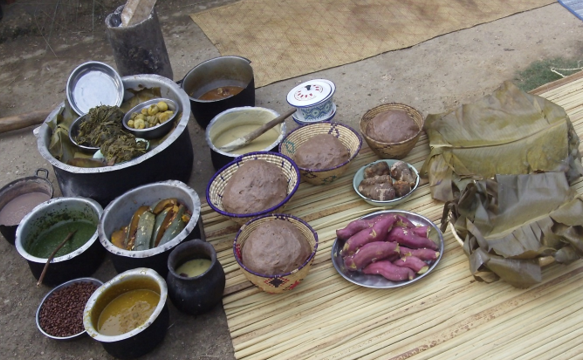The COVID-19 pandemic has revealed that the world’s biodiversity can be a forge in fighting diseases, which is critical for the burgeoning global population. According to the Alliance of Biodiversity International, a staggering 800 million (with the numbers expected to rise) are already affected by hunger- an aftershock- that will be experienced during and after the COVID-19 crisis.
Combined with climate change, the fragility of our food systems has been immensely tested with many countries already exposed; lacking resilient and sustainable food supply chains that can support a majority of vulnerable populations at the brink of hunger.
In line with this year’s, theme of International Day for biological diversity: “our solutions are in nature,’’ the role of nature and biodiversity loss in food security has never been more pertinent during these unprecedented times. Reflecting on the theme, Hivos East Africa’s Sarah Nyakio sat down with Mohammed Shariff to examine the role of biodiversity to humanity’s well-being and health.
Mohamed is the acting Executive Director of Kabarole Research and Resource Center (KRC) in Uganda. KRC focuses on food security and agribusiness issues in the Rwenzori region of Western Uganda and equally works with small scale farmers to revive traditional farming methods and promote biodiversity.
SN: What is food biodiversity?
MS: Food biodiversity is the assortment of different plants that are cultivated in the wild. Biodiversity provides us with a wide range of species which form a crucial part in the food we plant and consume.
SN: What is the connection between food biodiversity and healthy, nutritious, diverse foods?
MS: Biodiversity is vital in meeting the food and nutrition needs of the ever-growing population. Indigenous foods contain micronutrients that play a critical role in nutrition. With biodiversity, farmers can produce more food that is nutritious and healthy.
In Uganda, we have a wide range of indigenous foods that have high nutrient composition and provide the consumers with more diverse diets, these foods are more nutritious and combat nutrient deficiency in the country. The consumption of indigenous foods has improved the nutritional status of many households.
SN: Tell us how your organization is improving and supporting the food biodiversity movement?
MS: First, KRC is using agro-ecology techniques to improve biodiversity for small-scale farmers in Kabarole. We encourage and teach farmers agro-ecological methods of farming instead of chemicals to improve their soil quality.
Secondly, we stimulate the demand and production of agro-ecological produced foods. We support the consumption of indigenous foods in homes and encourage street vendors to add indigenous foods to their menus after teaching them ways of preparing them.
Thirdly, we are constantly working with local and national authorities to influence policies that promote sustainable food systems through biodiversity.
Lastly, KRC has began teaching local farmers on biotechnology methods, we have so far supported two seed banks in Kabarole district which will ease the gathering and accessibility of more indigenous species.
SN: What are the leading causes of loss of biodiversity and how can we mitigate them?
MS: The major one is poor farming methods especially mono-culture which is the biggest issue in Uganda. Mono-culture destroys the health of the soil leaving it less diverse and therefore compromising biodiversity.
In addition, the use of chemicals like fertilisers affects the soil structure and strips off micro-organisms which are pivotal in biodiversity.
Furthermore, the loss of cultural values has affected how we preserve seeds. Therefore, we need to bring back traditional seed methods of preservation and exchange between farmers that are also inexpensive. More effort is also needed to improve knowledge on the benefits of food biodiversity.
SN: Are there policies that support food biodiversity in your country?
MS: Yes, some policies support food biodiversity. Uganda is part of the Convention on Biological Diversity. We also have strategies and policies that domesticate biodiversity, for instance, the National Biodiversity Strategy and action plan 2015-2025 which is an instrument in the implementation of the Convention.
The policies have allowed us to design programs that indorse biodiversity in the country.
SN: ‘Our solutions are in nature” how does that resonate with the work you do?
MS: Nature is one of our values at KRC. We believe that it essentially forms a vital part of the work we do. Agriculture is fully dependent on nature and we should protect nature as its destruction can threaten food security. Without nature, there is no food.
SN: Tell us how your partnership with Hivos has progressed the biodiversity initiative in your community?
MS: Our partnership with Hivos East Africa under the Sustainable Diets for All program has boosted the work we do in populating the benefits of indigenous foods. Through our partnership, more people are slowly starting to consume indigenous foods which have greatly improved the nutritional index in most households.
The partnership has also allowed us to collaborate with policymakers in developing policies that promote food biodiversity as a measure to counter the high level of malnutrition in Uganda.




